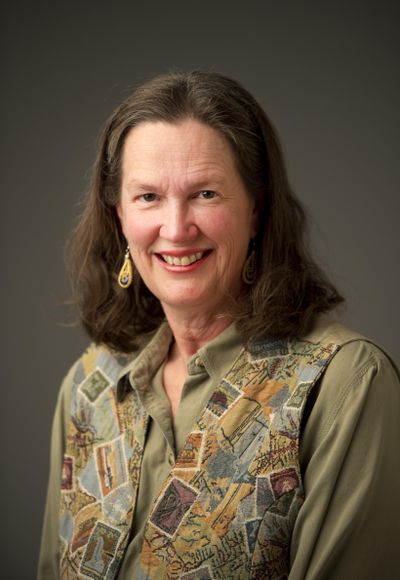Sue Lani Madsen: Maybe Washington state needs its own electoral college

Once again Washington is on the brink of divorce.
Proposals for splitting off Eastern Washington have re-emerged with the filing of House Joint Memorial 4000 petitioning Congress to form the new state of Liberty. Then there’s the young man from Arlington who’s proposing a future ballot initiative to create a state of Madison that includes northwest Washington.
I prefer taking the name Columbia in honor of the river basin that defines the region. That option was supposedly discarded in favor of Washington when the state was created to avoid confusion with the District of Columbia. We might as well reclaim state of Columbia if we’re really going through with the breakup. D.C. isn’t using it.
Our geographic diversity is unique. If you decided to draw a rectangle approximately the shape of the state of Washington anywhere on the globe to encompass maximum diversity in climate and terrain, you’d put it right here. We have coastal rainforests and sagebrush deserts, high mountains and low rolling hills, rivers and oceans, glaciers and volcanoes. As a lifelong Washingtonian, I’ve hiked and camped in all of it and I’d still want to have visitation rights.
I’m a state-splitting skeptic, but I don’t object to going through the exercise.
Let’s start with the 2016 election results in the 19 counties of Eastern Washington. Following the national pattern of red counties outside of major metropolitan areas, “Columbia’s” voters supported Republicans over Democrats for partisan state offices everywhere except the heart of Spokane. There wasn’t much of a choice at attorney general without a Republican in the race. Maybe Columbia would have voted in Larry Haskell.
Superintendent of public instruction is a nonpartisan race. The liberal blue West Side counties went for the white guy, Chris Reykdal, a former Democratic state legislator. The conservative East Side kept it a close race, and would have elected state and national award-winning teacher Erin Jones as the first black woman to serve in statewide office.
The State of Columbia would clearly elect different leadership and set different priorities. But what about the economy?
According to a 2008 Office of Financial Management study requested by the Legislature, the state collects less in taxes from Eastern Washington counties than it lays out in expenditures. The plain economics seem inarguable, until you read the background and updates.
The county revenue-to-expenditure spread narrowed significantly from 2008 to 2014. The 2008 calculation of revenue collected county by county is wildly out of date. An April 2015 update notes the switch to destination-based sales tax “spreads sales tax collections more evenly across the population.” Instead of sales tax revenue going to warehouse locations, sales tax revenue is now credited to the location of delivery. Can you say Amazon Prime?
College subsidies are allocated to the student’s original county of residence, skewing the expenditure statistics for small rural counties who export educated children. DSHS, prisons and education are broken out by county, but all other spending is apportioned per capita statewide with the assumption “all Washington residents benefit equally from expenditures made by other agencies.”
No, they don’t.
An economic study cannot reflect the unquantifiable impact of thirty years of Democratic policy control. Rural school districts could deliver education at lower cost with local innovation. A system requiring Hunters (population 306) to follow the same Growth Management Act planning process as Bellevue is clearly in need of cultural diversity training. If the state of Columbia dropped Washington’s prevailing wage rules, the cost of public projects could drop by as much as 25 percent.
One 2016 partisan race highlights the difference in Columbia’s priorities. For commissioner of public lands, Columbia supported a retired career U.S. Navy officer over the executive director of Futurewise, a nonprofit whose reason for existence is to sue or threaten to sue government agencies on natural resource issues. Republican Steve McLaughlin is an expert in major fire incident response, an issue of critical interest on the dry side. Hilary Franz had the D behind her name. She only captured six out of 39 counties, but one was King. Maybe a state-level Electoral College wouldn’t be a bad alternative to a divorce.
Columnist Sue Lani Madsen can be reached at rulingpen@gmail.com or on Twitter @SueLaniMadsen.